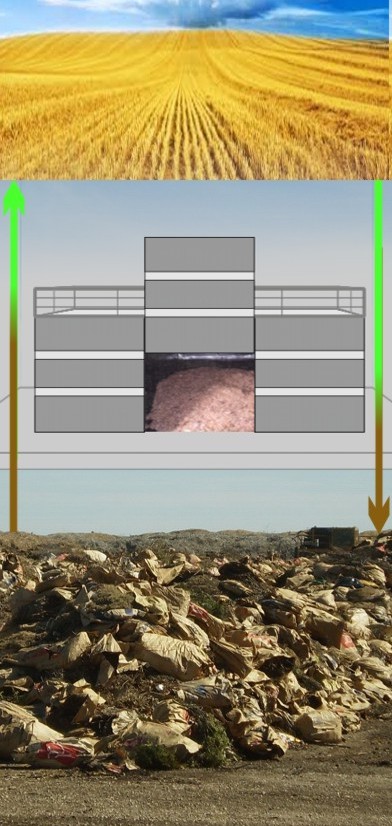
Solid waste is a general term that includes not only solid waste, but also semi-solid or even liquid waste. Treating solid waste is important for our planet's sustainability.
Both Canada and the United States are among the largest producers of solid waste worldwide. In 2019, the annual waste production for Canada was 36.1 metric tons per capita while the annual waste production of the United States was 25.9 tons (USA Today).
Most solid waste material is still buried in landfills without treatment (except for removing materials good for recycling).
There are different methods for organic waste treatment. These methods include composting, gasification, pyrolysis, and incineration.
Composting is key to any sustainable waste management program. About 60% of household waste and almost all agricultural waste is valid for composting. Additionally, composting diverts material away from landfills and generates a valuable product for soil. Compost improves soil fertility without using chemical or peat-based products.
Osorno offers composting technology on an industrial scale. CompoFlex® is an in-vessel controlled composting process. It yields a clean, high-quality compost called NutriPlenish®. Any organic solid or semi-solid waste is good material for composting.
Composting materials can include farm waste, manure, biosolids, slaughtering waste, and municipal waste (garbage). Our CompoFlex® process generates biologically stable compost within 2-3 weeks. After curing, the compost is ready for field application.
© Osorno Enterprises Inc.